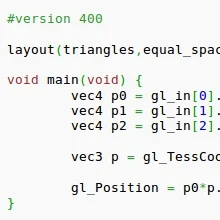Khronos SYCL Being Updated To Increase Appeal For HPC & Scientific Computing

SYCL is the single-source programming model for targeting various accelerators and based on C++17. SYCL plays a big role within Intel's oneAPI stack and has seen various other implementations for engaging SYCL across a variety of hardware. SYCL is already used by some HPC/scientific computing software like GROMACS, but the SYCL working group is striving to make this programming model even more attractive for such HPC and scientific computing software.
The Khronos Group shared today that the working group is working to reduce the overhead for SYCL kernel submission. Reducing the kernel submission overhead is necessary for more efficient execution especially for HPC workloads.
Another area being worked on with SYCL is supporting complex numbers to better handle scientific computing and signal processing software.
Rounding out the roadmap features shared today for SYCL is support for compile-time properties for providing new insight about SYCL kernels to the compiler for better optimizations.
More details on the current state of SYCL as of SC24 and their upcoming plans can be found via the Khronos.org blog.
2 Comments

